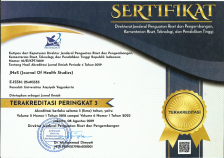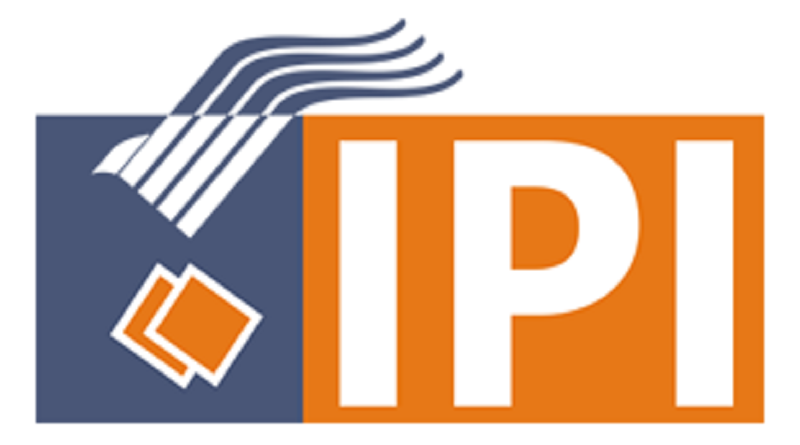Hubungan Antara Karakteristik Demografi Dengan Pengetahuan Remaja Tunagrahita Tentang Seksualitas
DOI:
https://doi.org/10.31101/jkk.2067Keywords:
pengetahuan, remaja, seksualitas, tunagrahitaAbstract
References
Asnuddin, & Haryono. (2020). Analisis Tingkat Pengetahuan dan Lingkungan Pergaulan dengan Perilaku Remaja Tentang Seks Pranikah. Jurnal Kebidanan Dan Keperawatan ’Aisyiyah, 16(1), 87–95.
Ciptiasrini, U., & Astarie, A. D. (2020). Persepsi dan Peran Orang Tua Terhadap Pemberian Pendidikan Seksual pada Anak. Jurnal Kebidanan Dan …, 16(1), 19–26. https://ejournal.unisayogya.ac.id/ejournal/index.php/jkk/article/view/612
Direktorat Bina Kesehatan Anak. (2011). Pedoman pelayanan kesehatan anak di Sekolah Luar Biasa (SLB) bagi petugas kesehatan. Jakarta: Kemenkes RI.
East, L. J., & Orchard, T. R. (2014). Somebody else’s job: Experiences of sex education among health professionals, parents and adolescents with physical disabilities in southwestern Ontario. Sexuality and Disability, 32(3), 335–350. https://doi.org/10.1007/s11195-013-9289-5
Gottfredson, L. S., & Deary, I. J. (2004). Intelligence Predicts Health and Longevity, but Why? Current Directions in Psychological Science, 13(1), 1–4. https://doi.org/10.1111/j.0963-7214.2004.01301001.x
Hardoff, D. (2012). Sexuality in young people with physical disabilities: theory and practice. Georgian Medical News. 210, 23-6
Isler, A., Beytut, D., Tas, F., & Conk, Z. (2009a). A study on sexuality with the parents of adolescents with intellectual disability. Sexuality and Disability, 27(4), 229–237. https://doi.org/10.1007/s11195-009-9130-3
Isler, A., Tas, F., Beytut, D., & Conk, Z. (2009b). Sexuality in Adolescents with Intellectual Disabilities. Sexuality and Disability, 27(1), 27–34. https://doi.org/10.1007/s11195-009-9107-2
Jahoda, A., & Pownall, J. (2014). Sexual understanding, sources of information and social networks; the reports of young people with intellectual disabilities and their non-disabled peers. Journal of Intellectual Disability Research, 58(5), 430–441. https://doi.org/10.1111/jir.12040
Kijak, R. (2013). The sexuality of adults with intellectual disability in Poland. Sexuality and Disability, 31(2), 109–123. https://doi.org/10.1007/s11195-013-9294-8
Ling, F. (2008). Self-care behaviours of school-aged children with heart disease. Pediatr Nurs Journals, 32(2), 131–138.
Lockhart, K., Guerin, S., Shanahan, S., & Coyle, K. (2010). Expanding the test of counterfeit deviance: Are sexual knowledge, experience and needs a factor in the sexualised challenging behaviour of adults with intellectual disability? Research in Developmental Disabilities, 31(1), 117–130. https://doi.org/10.1016/j.ridd.2009.08.003
Mertia, E. N. (2011). Hubungan antara pengetahuan seksualitas dan kualitas komunikasi orangtua dan anak dengan perilaku seks bebas pada remaja siswa-siswi MAN Gondangrejo Karangnyar. Jurnal Wacana Psikologi, 3(6), 109-136.
RISKESDAS. (2013). Riset Kesehatan Dasar; Badan Penelitian dan Pengembangan Kesehatan Kementerian Kesehatan RI Tahun2010. Laporan Nasional 2010, 1–446.
Rowe, B., & Wright, C. (2017). Sexual knowledge in adolescents with intellectual disabilities: A timely reflection. Journal of Social Inclusion, 8(2), 42. https://doi.org/10.36251/josi.123
Schaafsma, D., Kok, G., Stoffelen, J. M. T., & Curfs, L. M. G. (2015). Identifying effective methods for teaching sex education to individuals with intellectual disabilities: A systematic review. Journal of Sex Research, 52(4), 412–432. https://doi.org/10.1080/00224499.2014.919373
Siebelink, E. M., De Jong, M. D. T., Taal, E., & Roelvink, L. (2006). Sexuality and people with intellectual disabilities: Assessment of knowledge, attitudes, experiences, and needs. Mental Retardation, 44(4), 283–294. https://doi.org/10.1352/0047-6765(2006)44[283:SAPWID]2.0.CO;2
Sitohang, Y.S., Shaluhiyah, Z., & Widagdo, L. (2018). Faktor-faktor yang berhubungan dengan praktik orang tua dalam menghadapi perilaku seksual pada remaja tunagrahita ringan di SLB Kota Semarang. Jurnal Kesehatan Masyarakat, 6(5), 822-829.
Susilawati, E. L. (2016). Pelaksanaan pembelajaran ekstrakurikuler kesehatan reproduksi bagi anak tuna rungu di SLB N 2 Bantul. Yogyakarta: Universitas Negeri Yogyakarta.
Walker, J. L. (2001). A qualitative study of parents’ experiences of providing sex education for their children: The implications for health education. Health Education Journal, 60(2), 132–146. https://doi.org/10.1177/001789690106000205
Downloads
Published
How to Cite
Issue
Section
Citation Check
License
With the receipt of the article by the Jurnal Kebidanan dan Keperawatan Aisyiyah Editorial Board and the decision to be published, then the copyright regarding the article will be diverted to Jurnal Kebidanan dan Keperawatan Aisyiyah. Universitas 'Aisyiyah Yogyakarta as the publisher of Jurnal Kebidanan dan Keperawatan Aisyiyah hold the copyright regarding all the published articles in this journal.
Jurnal Kebidanan dan Keperawatan Aisyiyah is licensed under a Creative Commons Attribution-ShareAlike 4.0 International License.

















